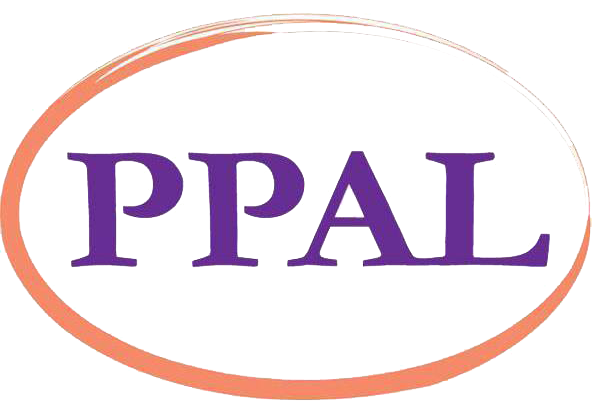Read this article for information on what parents can do to curb sibling bullying.

The 7 Worst Pieces of Advice Parents Whose Children Have Mental Health Needs Hear. Often.

Originally posted by the Parent/Professional Advocacy League.
Parents of children with mental health needs are given lots of spectacularly bad advice. I certainly got plenty until I learned an effective phrase or two to politely rebuff it. But that took years.
In the meanwhile, I perfected two looks. There’s the I-am-earnestly-considering-this look (even though I thought it was pretty dumb and already knew it wouldn’t work). Or, there’s the slightly-shocked-you-are-saying-this look (while inside I was raging, “There is zero chance I would do this to my child”).
Some of the advice I was given early on included, “Why don’t you restrict his diet to non-junk, no-sugar, organic, barely-processed foods plus water?” This was from friends who thought the “right foods” would fix whatever was wrong with my son. This got the considering look so I wouldn’t get in a discussion on how to feed a child who would only eat foods that were one color – whitish beige. (On his list was chicken, bread, crackers, apples with no skin, well, you get the idea.) He also refused foods that touched one another. So I simply blew off suggestions that I look into foods like broccoli or raspberries. Not a chance.
On the other end of the advice rainbow there was, “Why don’t you consider giving the state custody and having them institutionalize him?” Actually. this was first suggested over the phone from a former in-law so he probably didn’t see my shocked look. But I could feel it on my face. This translates into “Why don’t you give up on him?” and many parents have heard variations. Adoptive parents have also heard the suggestion to just give them back, some report.
I also got advice from different categories of counsel-givers. There were the parents who had kids who were not even a little bit like mine. They were sure that what worked for their child had more to do with the strategy and less to do with the child. They were wrong for the most part. One piece of advice that was pretty odd was to suggest that I laugh when my son had a meltdown. “It startles them so much,” I was told “that they forget why they were crying in the first place.” Um, no, that would have probably escalated things. Good thing I didn’t try it out.
Parents like me are given lots of bad advice, so it’s hard to choose. But here are my top 7.
- Let your child hit rock bottom. I first heard this when my son was 8. That’s right, he was in third grade. What’s rock bottom for an 8-year old anyway? I heard this many more times as he grew older and I was doing everything I could dream up to stop his roller coaster of emotions and behaviors. Even when it felt like we were in freefall toward rock bottom, I never let him – or me – hit it. Fortunately, studies show that parents play a critical role in getting their child the treatment and services they need as well as being a major positive force in their child’s mental health and well-being. Letting them hit rock bottom doesn’t go well with that.
- Why don’t you try a sticker chart? I heard this so often I got to the point that I had to grit my teeth before replying. Parents of children like mine only have to say “sticker chart” to other parents to see them roll their eyes. Sticker charts are like bringing a squirt gun to a 5-alarm fire. One mom told me that the school counselor slipped a piece of paper in her hand “like a drug deal, with Magic 1-2-3 written on it.” Sure, rewards work. Sure, positive reinforcement is a good idea. But when your child has hours-long meltdowns or does wild and unpredictable things, sticker charts are not the secret sauce.
- You need to be stricter or softer. Or you don’t love him enough. Everyone who has a child with mental health issues feels like a woefully inadequate parent at times, actually a lot of the time. We want to learn parenting strategies that can have an impact and often test them out. But too-strict or too-lenient parenting does not cause mental health issues. When I used to lead support groups, I was amazed at how differently people parented. During one group that I’ll always remember, there were three different parents, each with a middle schooler diagnosed with a mood disorder and with very similar behaviors. One parent was of the “spare the rod and spoil the child” philosophy, another was laissez-faire in her approach and the third was in the middle. Yet each described a child with symptoms and behaviors that were uncannily alike. It wasn’t the parenting which caused the intense behaviors, it was the illness.
- Don’t aim too high or “he’ll never be able to do that.“ As parents we know our children best. But then this whammy of emotional and behavioral stuff comes along and you reassess. If I push him to power through this school work, will it overwhelm him? If I back off the pressure, will she never reach her potential? We know our kids need nudging and we worry how they will do as an adult. Still, we see their potential every day. When others tell us to dumb down our expectations for our child, it doesn’t support us and or him.
- Children shouldn’t be given such strong medications. People without medical degrees don’t seem to have a problem saying this when they learn a child is taking psychiatric medication. The reality is that the array of treatments for our kids includes medication. My son went through 34 different medications before we found one that worked and I saw both amazing results and terrible side effects along the way. The medication trials, not just the meds, often take the greatest toll on children and parents. Our kids have problems with focus, mood, sleep, anxiety, impulsivity and aggression. Yet the world (especially school) expects them to participate every day. Lots of kids simply do better with medications.
- Just wait, she’ll grow out of it. I was told often that it was ‘just a phase” or that “this too will pass.” Occasionally, someone would say “boys will be boys” just for variety. I was years into the meltdowns and self-hurting and still hearing adages like this. This kind of advice encourages parents to delay seeking help or treatment, sometimes for years. I’ve heard many parents say when their child was older that they wish they had brought up their concerns earlier than they did but they were given false assurances like these.
- God never gives you more than you can handle. I heard this more than once, often when I was barely held together by spit and determination. The person saying it usually got to see my disbelieving look. While this might be intended to be reassuring, it comes across as callous (I don’t care about your pain) or just plain ignorant (you wouldn’t say that if you really knew how much I’m dealing with). An offer of help would be a much better move.
My own advice counsel is to spot the advice coming as soon as you can and get ready with those shocked and disbelieving looks. Believe me, you’ll get plenty of practice using them.
A parent’s job is to choose what’s right for the whole family including themselves and the other children in it, not just the child with the mental health needs. To do that, we need to learn to stop pleasing the advice givers and begin rejecting the bogus advice. Now if we could just get people to stop giving it.
Read the original blog post on the Parent/Professional Advocacy League website.




